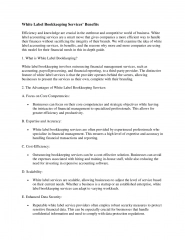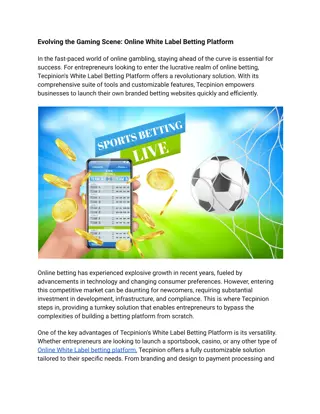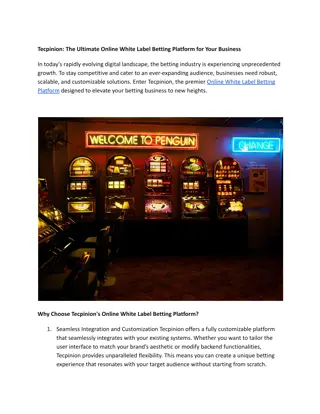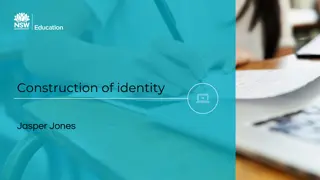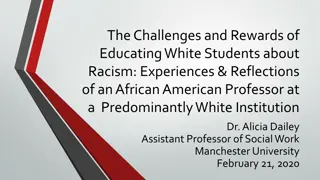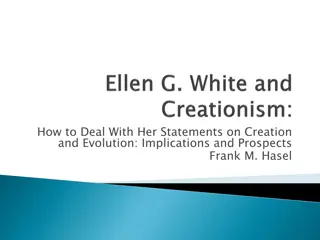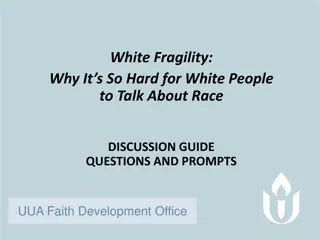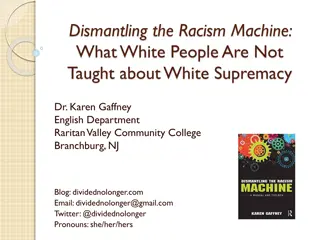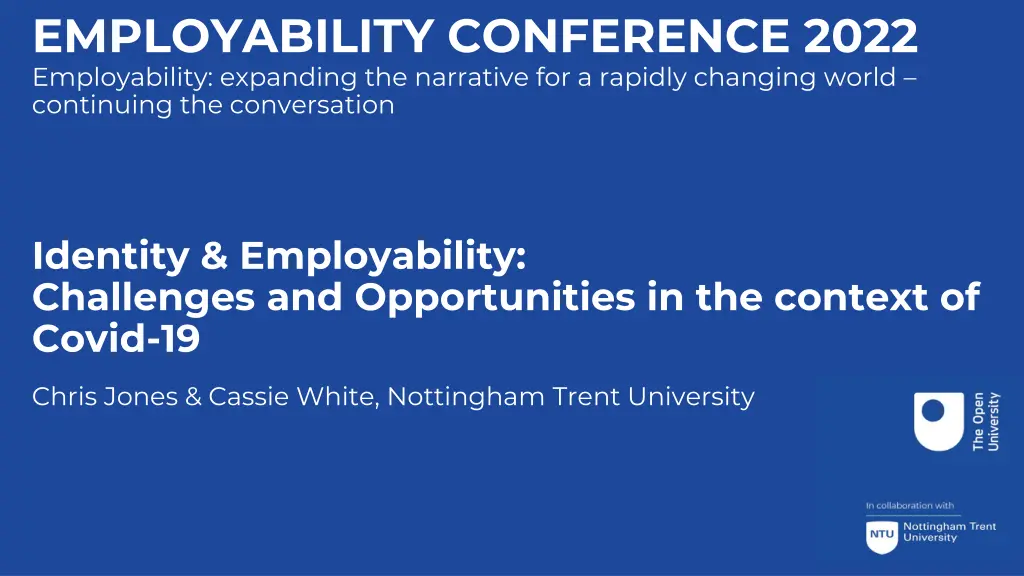
Exploring Identity, Employability, and Covid-19 Impact in Higher Education
Delve into the nexus of identity and employability in the evolving landscape of higher education amidst the challenges brought by Covid-19. Understand student concerns, engagement issues, and strategies for enhancing identity development for future employability.
Download Presentation

Please find below an Image/Link to download the presentation.
The content on the website is provided AS IS for your information and personal use only. It may not be sold, licensed, or shared on other websites without obtaining consent from the author. If you encounter any issues during the download, it is possible that the publisher has removed the file from their server.
You are allowed to download the files provided on this website for personal or commercial use, subject to the condition that they are used lawfully. All files are the property of their respective owners.
The content on the website is provided AS IS for your information and personal use only. It may not be sold, licensed, or shared on other websites without obtaining consent from the author.
E N D
Presentation Transcript
EMPLOYABILITY CONFERENCE 2022 Employability: expanding the narrative for a rapidly changing world continuing the conversation Identity & Employability: Challenges and Opportunities in the context of Covid-19 Chris Jones & Cassie White, Nottingham Trent University
Identity & Employability: Challenges and Opportunities in the context of Covid-19 Chris Jones & Cassie White 09/05/2025
Aim Explore the importance of identity throughout the university journey in relation to employability Reflect on some of the issues that are emerging from the Covid-19 pandemic and the impact these may be having on identity formation for students in relation to learning for employability Discuss how we can revise and reimagine our approach to make identity more central within employability in future
Covid impact: student concerns 45% 38% 76% of university students feel unprepared for employment (Prospects Early Careers Survey, 2021) of university students said they were uncertain about their plans (Prospects Early Careers Survey, 2021) of students are worried about gaining skills and experience needed for employment (Sutton Trust, 2021) 34% Overall of students felt their development of non-academic life skills (incl. communication, motivation, confidence, resilience or leadership) had been negatively impacted by the pandemic (Sutton Trust, 2021) Students feel very concerned about the loss of opportunities to explore career paths, network and gain work experience which has affected their confidence and motivation (ISE Webinar, 2021)
Covid impact: affecting all areas of engagement 48% of graduate employers report that they are receiving fewer applicants for graduate vacancies that this time last year (ISE vacancy survey, 2022) There have been issues with engagement and attendance at careers events, particularly online (ISE webinar, 2021) Loss of motivation and learning performance using online learning methods during MCO period (Tan, 2021) Some of the key challenges faced were internet connectivity & understanding of the content of their subjects (Chung et al., 2020) Respondents did not want to continue their lesson using online learning methods (Chung et al., 2020)
Twitter screenshot used with permission from Dr. Liam Kennedy
Identity Lens How might we understand some of these impacts through the lens of identity development? What does this tell us about the key role of identity within employability and the student journey? Developing a positive student identity Transition into HE Developing a pre- professional identity Journey through HE Developing a graduate identity Transition out of HE
Identity lens - overview of our key points Identity is a critical element of employability Higher education is a key stage in the development of personal and professional identity Identity is developed in the context of interactions with others Experiences during Covid may have disrupted opportunities for positive identity development, leading to uncertainty and / or disengagement What therefore can HEIs do to re-centre, re-connect and re-motivate students and graduates? And how can we re-position identity as a more central feature of careers and employability work and learning and teaching more generally?
Transition into HE Sense of belonging & initial development of a learner identity (Briggs et al. 2009) A positive identity provides a secure foundation for future learning and employability Culture of belonging is critical to success & wellbeing of students (Thomas, 2012; Bathmaker et al. 2016) If threatened, focus shifts to resolving threat, rather than on learning (Boekaerts, 1993) Transition into HE Need a positive identity in order to learn effectively (Banks & McGee Banks, 2005; Bennett, 2003)
Journey through HE Pre Professional Identity (PPI) Construction of PPI takes place in landscape of practice (Jackson, 2016) Self authorship Journey through HE Define own belief system, identity and relationships (Baxter Magolda, 2001) Exposure and guidance transforms students to novice professionals Exposure to and engagement with communities of practice in HE is key to development of pre- professional identity Understanding & connection with qualities, skills, conduct, culture and ideology of intended profession
Landscape of Practice Curriculum (academic mentors & peers) Mentors & role models Friends & family Community & Volunteering Alumni Construction of Identity takes place within landscape of practice Student Support Services Professional bodies Clubs & Societies Student Union Employers Placements internships Work experience Careers Services
Curriculum (academic mentors & peers) Mentors & role models Friends & family Community & Volunteering Alumni Construction of Identity takes place within landscape of practice Student Support Services Professional bodies Clubs & Societies Student Union Employers Placements internships Work experience Careers Services
Transition out of HE Graduate Identity (Holmes, 2015) Career is an 'identity project' which involves the construction and negotiation of identity Employability can be seen in terms of the relationship between the graduate and the employer To be 'agreed', a graduate identity has to be claimed by an individual and affirmed by others. Graduates will experience a range of different trajectories in the development of their emergent graduate identity post- graduation. Modalities of emergent identity (taken from Holmes, 2015)
Modalities of emergent identity (Holmes, 2015)
Our thoughts A positive student identity is a vital foundation for learning and engagement with communities of practice - Pre-entry & early arrival work supports thgroups nd creating support that is conducive to a is transition and sense of belonging Awareness of identity challenges faced by diverse positive identity (Jaspal, 2015) Developing a pre- professional identity Journey through HE Students need to become fluent in the language of identity in order to articulate and 'claim' their graduate identity Graduate and professional identity development continues after graduation throughout the career journey Universities need to re-explore post graduation support and access to networks Engagement with communities of practice are a key foundation for pre- professional identity Students must be supported to engage with people and experiences through their time in HE Explicit focus in learning and teaching to help students reflect on and articulate their evolving identity Developing a positive student identity Transition into HE Developing a graduate identity Transition out of HE Lifewide and lifelong learning Awareness and acknowledgement of individual and societal context and background
References Banks, J. A. & McGee Banks, C. A. eds. (2005) Multicultural Education: Issues and Perspectives. New York, Wiley Bathmaker, AM., Ingram, N., Waller, R. (2012). Higher education, social class and the mobilisation of capitals: recognising and playing the game. British Journal of Sociology of Education. 34 (5-6), 723-743. Baxter Magolda, M.B (2001) Making their own way: narratives for transforming Higher education to promote self development. Sterling, Stylus. Bennett, C.I. (2003). Comprehensive multicultural education: Theory and Practice. Boston: Allyn and Bacon Boekaerts, M. (1993) Being concerned with well being and with learning Educational Psychologist 28 (2) 149 167 Briggs, ARJ., Clark, J., Hall, I. (2012). Building Bridges: Understanding student transition to university. Quality in Higher Education. 18(1), 3-21. Breakwell, G.M (1986) Coping with threatened identities. London: Methuen. (Chung, E., Subramaniam, G & Dass, L.C. (2020) Online learning readiness among university students in Malaysia amidst COVID-19. Asian Journal of University Education 16 (2) 46 58. Dean, B.A., Campbell, M. (2020) Reshaping work integrated learning in a post-COVID-19 world of work. International Journal of Work-Integrated Learning, special issue 21 (4) 356 364. Holmes, L. (2015), "Becoming a graduate: the warranting of an emergent identity", Education and Training, 57 (2) 219-238 Institute of Student Employers (2021) Can I have your attention? Why student engagement is a challenge this Autumn (online webinar, downloaded from www.ise.org.uk)
References Institute of Student Employers (2022) ISE Graduate and School Leaver Vacancy Survey 2022 (downloaded from www.ise.org.uk) Jackson, D (2016) Re-conceptualising graduate employability: the importance of pre-professional identity, Higher Education Research & Development, 35 (5), 925-939 Jaspal, R (2015) Constructing and protecting identity in a diverse higher education context, Perspectives: Policy and Practice in Higher Education 19 (4) 27 134 Jaspal, R. & Breakwell, G. M. (eds.) (2014). Identity Process Theory: Identity, social action and social change. Cambridge: Cambridge University Press. JISC (2021), Prospects Early Careers Survey 2021 (downloaded from https://luminate.prospects.ac.uk/early-careers-survey-2021-jobs- apprenticeships-and-postgraduate-study) Sutton Trust (2021) Covid 19 and the University Experience https://www.suttontrust.com/wp-content/uploads/2021/02/Covid-19-and-the- University-Experience.pdf Tan, C. (2021) The impact of COVID-19 on student motivation, community of inquiry and learning performance. Asian Education and Development Studies 10 (2) 308 321 Tarc, P. (2020) Education post Covid-19 : Revisioning the face-to-face classroom Current Issues in Comparative Education, 22 (1) 121 124. Trede, F., Macklin, R., & Bridges, D. (2012). Professional identity development: A review of the Higher Education literature. Studies in Higher Education, 37(3), 365 384. Thomas, L. (2012) Building student engagement and belonging in higher education at a time of change. Higher Education Academy, York, England. https://www.heacademy.ac.uk/knowledge-hub/building-student-engagement-and-belonging-higher-education-time-change-final- report

